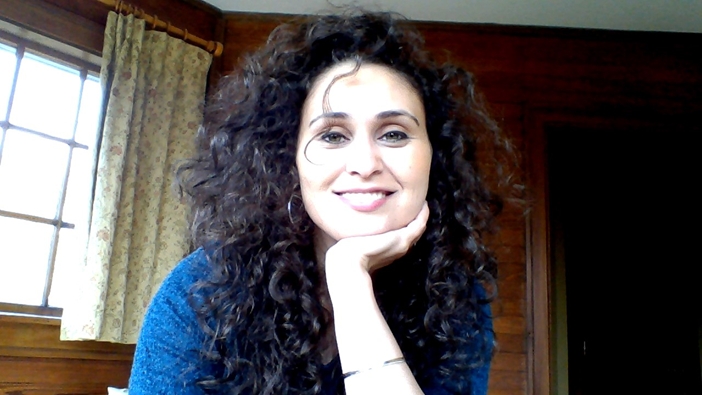Milena Ropoldi: You speak of Islamic feminisms. What does this mean to you personally?
Zahra Ali: Islamic or Muslim feminist views are held by people who think or act for equality and against patriarchy taking the Muslim religious framework as reference. There are as many forms of feminism as there are contexts, and Muslim feminist activism is very varied. It includes those who question the macho readings of Islamic jurisprudence (al-fiqh) based on an egalitarian reading of the Koran as carried out by the Musawah group for example, as it includes women inspired by Muslim spirituality in their struggle for gender equality and more generally for social justice.
Basically Muslim feminists like Amina Wadud, Asma Barlas, Zainah Anwar and Ziba Mir-Hosseini all insist on the distinction between al-fiqh, that is to say Muslim jurisprudence and al-shari’ah, which they define as the Way and not the law. In this way, Muslim feminists focus on the human character of Muslim legal production and on the fact that al-shari’ah is not a law to read and to apply, but the basic principles of justice and equality that guide the development of al-fiqh. The work of Muslim feminists is also principally focused on the hermeneutics of sacred texts, to extract patriarchal readings of the Koran from the dominant Muslim thought.patriarchy taking the Muslim religious framework as reference. There are as many forms of feminism as there are contexts, and Muslim feminist activism is very varied. It includes those who question the macho readings of Islamic jurisprudence (al-fiqh) based on an egalitarian reading of the Koran as carried out by the Musawah group for example, as it includes women inspired by Muslim spirituality in their struggle for gender equality and more generally for social justice.
The idea of Tawhid is central to Muslim feminisms, and I am also very committed to this idea which grants characteristics of domination and obedience only to the Divine. Nobody other than God himself should dominate or be obeyed. Thus all forms of domination and subjection of others are an appropriation of characteristics and a power that belongs only to the Creator. All creatures are equal facing the oneness of the Creator. This idea guides my life and struggle for social justice and equality.
Why is a domestic Islamic feminism which does not imitate the West necessary?
For me there is not really a West opposed to an East, an interior against an exterior, but there are hegemonic ways of thinking and living that are guided by a capitalist individualism and a patriarchal model distribution of roles and powers, as well as a secularization of public and private life. One can find the Patriarchate throughout the East and West, as one can find struggles for liberation everywhere and in many forms. The peculiarity of feminisms that are inspired by Islam, is the refusal to impose a hegemonic model of femininity and life, and that they take religious inspiration as a source of empowerment. It’s a way of affirming that religion is not only a means of oppression, but can also be liberating.
What does that mean, to renew and decolonise feminism in Muslim lands?
I think we need to decolonise hegemonic feminisms, those that exist in the exclusion of others and those who do not nest in the struggle for gender equality in the fight against racism and class inequality. The idea is to stay closer to the lives of women and not to seek to emulate other models of life whether they are – “Western” or “Islamic” – for realities that are diverse and complex. To decolonise feminism is to refuse essentialism and say that there are as many ways to break free as there are different contexts.
What are the main objectives of your book?
My book is a general introduction to Muslim feminist thought as it has developed over the last 20 years. It gives a voice to activists, researchers and activists from France, the USA, Iran, Malaysia through to Syria and Egypt. The aim was to showcase the main themes and issues which engage the movement both within the feminist field and the field of contemporary Muslim thought.
Feminism for me is collective dynamism, socio-political commitment and cultural and religious diversity. What do you think of that?
Yes, I agree, and I think that feminism is built from the varied interests of women and their realities.
When your book came out in 2012, it was a Francophone premiere. Four years later, how do you assess its scope and effects? Have you opened a breach in the wall of incomprehension, has anybody else stepped into this breach?
The book sold well: for a fairly specialized work and at a fairly academic level, this is very rare. It shows to what extent there was a gap in the literature on the subject. I think it was a good tool for Francophone Muslim feminists. I received many messages from activists and researchers who have expressed to me that the book had been very useful to them in their feminist and anti-racist thinking and engagements. I also received many messages from academics and students who used the book as a base for research on the issue. I think the book has done its job of introducing the subject, to problematize and to include the different currents of critical feminism. Now, I also feel that it’s audience remains that of an informed public, rather sensitive to feminist issues, anti-racist and postcolonial. Regarding the wider public, I am not sure that the book has reached those who consider feminism and Islam as incompatible. I think it was more a tool for those already engaged in a reflection or a form of feminist and anti-racist activism.






